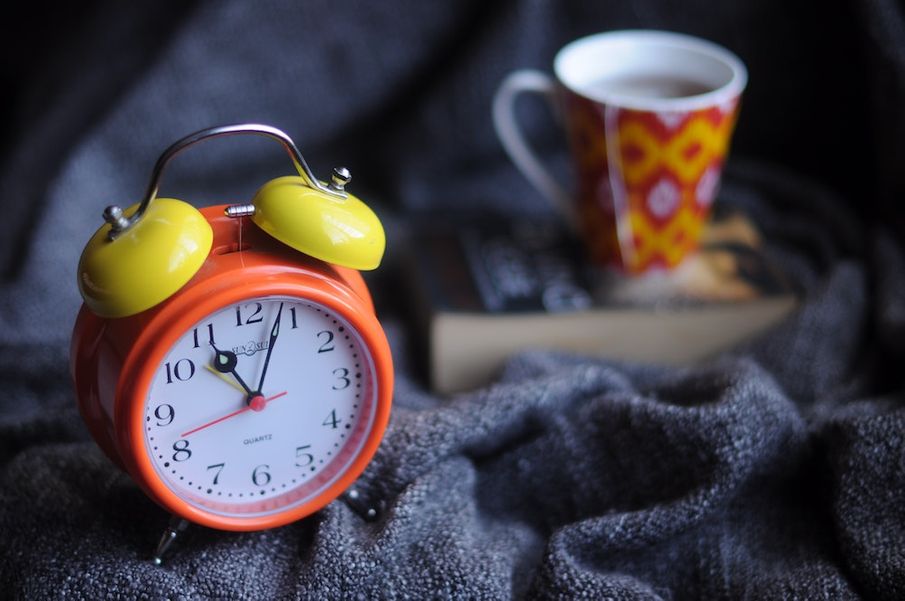One in three Brits have trouble getting to sleep at night. Are you one of the unlucky third? If so, we have the solution
We all experience nights where our minds are whirring, and we just can’t seem to fall asleep. “Did I attach that document to the email?”, “Why didn’t I speak up in that meeting?”, or “How am I going to manage my debt?” Constant worrying at night can have a serious impact on our health and cause us to underperform the next day. If you find yourself lying wide awake and worrying about the world, one, or all, of the following suggestions could help you to fall asleep quicker than you can say “lights out!”
Light a candle
Helping to create that relaxing atmosphere, lighting a scented candle could be ideal for setting the mood for sleep. And particular scents have been found to be more effective, with spiced apple scent proven to lower systolic blood pressure, according to Dr Gary Schwartz at Yale University. When your blood pressure is lower, you’ll naturally be more relaxed, which will help you to drop off quicker. A word of caution though: remember to blow out the candles before you close your eyes.
Read a book
Reading for just six minutes before turning off the light can work wonders. Based on a 2009 study conducted by the University of Sussex, reading can also reduce stress levels by nearly 70%. What’s more, a good book is a form of escapism, which should help to relax your natural energy, and help you to drift off.
Dr David Lewis, who organised the study, says it doesn’t really matter what type of book you read, as long as you can thoroughly lose yourself in the engrossing storyline. This will allow you to forget the worries and stresses of the day that’s gone. A favourite trick with the Happiful team, we can vouch for its effectiveness.

Bathe before bed
Science says that just before we fall asleep our body temperature drops. By having a warm bath, you’ll quickly raise your body temperature. When you get out of the bath, your temperature will rapidly fall. By prompting your body to drop in temperature – the process that happens naturally inside your body before sleep – it could help you to fall asleep in minutes. A study suggests that those who have a warm bath (or shower) before bed are not only more likely to fall asleep quicker, but will also have a better night’s sleep, too.
Warm your paws!
A study released by the Swiss journal Nurture suggests that “warm feet promote the rapid onset of sleep”. Don’t believe us? Wear a pair of socks or have a hot water bottle at the bottom of your bed. Warming your feet will cause your blood vessels to widen (vasodilatation is the fancy term), which allows more heat to escape through your feet, and therefore cools your core temperature down and reduces your blood pressure. So, put a pair of fluffy socks on your next shopping list if you’re struggling to get some shut-eye.
Cut the caffeine
It’s a well-known fact that that caffeine keeps us awake if we consume too much before bedtime. According to Sleep Education, caffeine will reach its peak level within 30–60 minutes of entering your bloodstream. It’s suggested that caffeine has a half-life of three to five hours. This means that within that time the amount of caffeine in your system will decrease to half the initial amount. So, if you’re aiming to get to sleep by 11pm, maybe move on to herbal tea after midday – it’s much better for you anyway. Plus, think of the cash you’ll be saving by no longer stopping at the cafe to purchase that afternoon coffee kick.

Play some classical music
A study conducted by psychologist Laszlo Harmat investigated the effects of music on young people with sleep disorders. The study comprised three groups and participants either listened to classical music, an audiobook, or nothing at all. Harmat found that “relaxing classical music is an effective intervention in reducing sleep problems,” whereas sleep quality did not improve for either the audiobook group or those without aural aids. Other research suggests that music with a slow rhythm can help you nod off, so maybe avoid Beethoven’s ‘Ode to Joy’ as you change into your jammies.
Exercise
Evidence suggests that moderately intensive aerobic exercise can reduce the time it takes to fall asleep, and can increase the length of sleep in people with chronic insomnia. Maybe a brisk walk in the evenings will help? But be mindful – overexerting yourself immediately before bed can have the opposite effect, so perhaps keep the HIIT sessions for earlier in the day.
Paradoxical intention
This is the idea that by telling yourself to stay awake, you can ‘trick’ yourself into falling asleep faster. Sometimes when we are struggling to sleep, actively trying to sleep increases our anxiety, and makes it even harder to switch off. The Society of Clinical Psychology suggests that by reframing the situation to try to stay awake for as long as possible, the performance anxiety relating to not being able to sleep will reduce, enabling you to fall asleep more quickly.
Original article published: 4 August 2017. Updated 23 April 2020.
For more information on support for sleep problems visit Hypnotherapy Directory


Comments